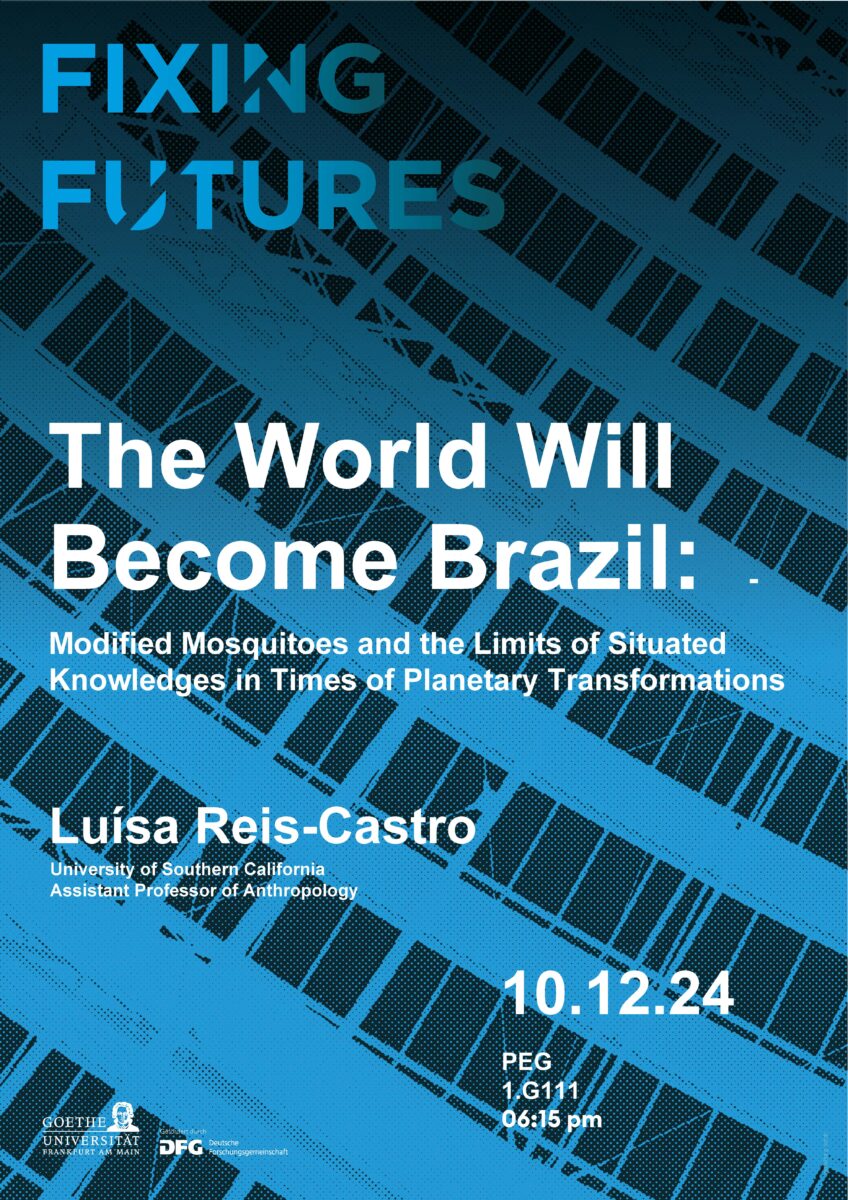Modified Mosquitoes and the Limits of Situated Knowledges in Times of Planetary Transformations
| 10.12.2024, 6:15 pm, PEG 1G.111 | Prof. Dr. Luísa Reis-Castro (University of Southern California) |
For more than one hundred years, public health campaigns in Brazil have targeted the mosquito Aedes aegypti, a vector of viruses such as yellow fever, dengue, Zika, and chikungunya. However, a new project being implemented in Rio de Janeiro, Brazil, proposes a radically different approach: to deploy A. aegypti infected with Wolbachia bacterium, a maternally inherited microbe shown to hinder viral transmission. “Wolbachia mosquitoes” are being released to mate with their “wild” conspecifics, transforming subsequent generations into less effective vectors. According to project proponents, Brazilian releases would produce meaningful epidemiological results, generating knowledge to grapple with future mosquito-borne diseases worldwide. That was particularly important, they argued, since rising global temperatures are predicted to increase the mosquito’s transmission rates and expand its geographic range. Or as one entomologist put it, “When it comes to mosquitoes, the world will become Brazil.”
Drawing on ethnographic fieldwork conducted in Rio de Janeiro from November 2017 to July 2018, I investigate how my interlocutors mobilized their situatedness to position the Wolbachia strategy as a planetary solution within the aftermath of failed vector control policies and the impending transformations of climate change. Whereas anthropologists of science and scholars of science and technology studies (STS) often argue that situating knowledges helps reveal political, social, and ethical considerations, my ethnographic research shows instead that situatedness can also be strategically deployed, including to evade, mask, and obscure these very considerations.

Luísa Reis-Castro is an Assistant Professor in Anthropology. Reis-Castro’s research broadly explores the social, cultural, political, and historical dimensions of scientific knowledge about human-animal relations, particularly when harm to humans is involved, as seen with mosquitoes transmitting pathogens. Her first project investigates techno-scientific projects in Brazil that, rather than fight against the Aedes aegypti mosquito, work to harness the insect to tackle the viruses it is known to transmit (Zika, dengue, chikungunya, and yellow fever). By using ethnographic and historical research methods, she explores what these projects can tell us about the geopolitics of knowledge production in an interdependent, unequal world increasingly affected by human activity.
